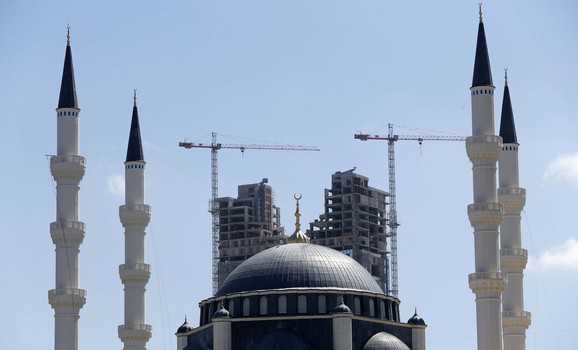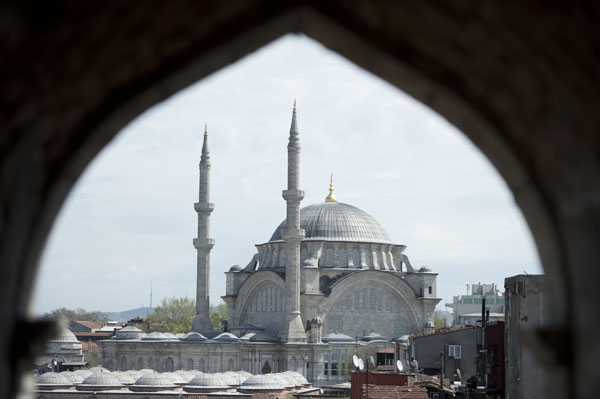The 85th anniversary of the foundation of the Turkish Republic is being celebrated all across the country with various activities on Wednesday.
Republic Day’s first ceremony took place in Anitkabir, Ataturk’s Mausoleum, in the Turkish capital of Ankara.
State officials led by Turkish President Abdullah Gul placed a wreath on mausoleum, observed a minute of silence and sang Turkish National Anthem.
“Great Ataturk, we are celebrating the 85th foundation anniversary of our Republic proudly. We promise to further glorify the Republic –you commended us– on the path you set; and further develop it over the contemporary civilizations you have marked. Rest in peace,” Gul wrote to Anitkabir special notebook.
Parliament Speaker Koksal Toptan, Prime Minister Recep Tayyip Erdogan, Constitutional Court President Hasim Kilic, Chief of General Staff Gen. Ilker Basbug, Republican People’s Party (CHP) Chairman Deniz Baykal, members of Council of Ministers, other political party leaders, military and civilian authorities also participated in the ceremony.
After the ceremony in Anitkabir, President Gul received congratulations at Turkish Parliament.
There will be glamorous activities with strong visual themes in Istanbul, while more official government ceremonies are being held in Ankara.
In Istanbul, the night sky will be lit up with fireworks, while the Bosporus Bridge and the Maiden Tower will be decorated with colorful lights and laser shows have been prepared.
Turkey became a republic on October 29, 1923. This formally declared the dissolution of Ottoman Empire; and Turkish State became a republic under the leadership of Mustafa Kemal Ataturk. Republic Day is celebrated across Turkey every year with formal ceremonies.





